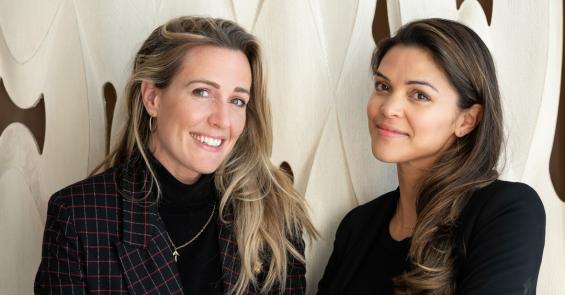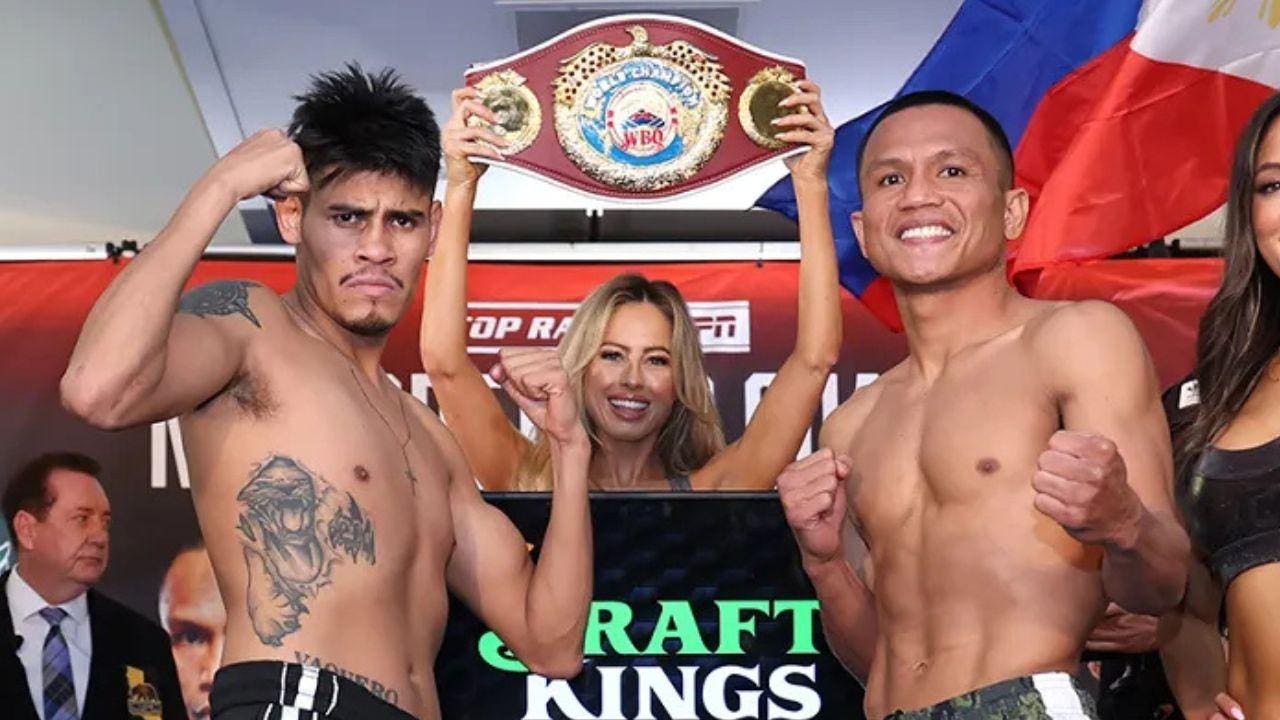Left to right: Muse Capital co-founders Assia Grazioli-Venier and Rachel Springate.
From femtech to sports team ownership, two women venture capitalists prove that backing overlooked markets is good business.
When Muse Capital co-founders Assia Grazioli-Venier and Rachel Springate launched their firm, they weren’t just looking for returns—they were looking to make an impact. With a strong background in business development, entertainment, and technology, the pair built a VC firm focused on women’s health and sports, as well as on founders and investors who bring fresh perspectives often ignored by Silicon Valley.
Their model is resonating. Muse Capital has invested in companies like Midi, Cofertility, and Eli Health—pioneers in femtech and hormone health—long before women’s healthcare innovation became trendy. Now, they’ve taken that thesis a step further with the acquisition of SailGP Italia, making Muse the first female-led ownership group in the SailGP sailing league, in partnership with Red Bull. Muse Capital isn’t just betting on founders. They’re betting on culture, community, and women.
A VC Firm Built by Operators—And Guided By Purpose
Grazioli-Venier and Springate didn’t follow the traditional VC track. Instead, they brought decades of experience creating partnerships between startups and Fortune 500s, celebrities, athletes, and influencers—relationships they now activate on behalf of portfolio companies.
That operator DNA is Muse Capital’s superpower. The firm helped Eli Health land a free Times Square billboard, brought Maria Sharapova on board as a strategic investor in Cofertility, and provided the opportunity to be a part of the Disney accelerator for Flickplay. “We want to be the most strategic, helpful investor on your cap table,” Springate said. “We don’t just make introductions—we execute.”
Their support goes far beyond capital. Lauren Makler, founder of Cofertility, said, “From day one, Muse Capital has been one of Cofertility’s most dedicated champions. Their support of initiatives like our Level the Playing Field campaign is just one example of how they show up—offering thoughtful insight, strategic introductions, and a genuine commitment to our growth.”
Muse’s thesis spans three investment buckets: care, live, and play.
- The “care” bucket, shaped by Grazioli-Venier’s experience with breast cancer, includes menopause care, fertility, maternal health, elder care, and mental health—areas historically underfunded by venture capital.
- The “live” category includes Ohai, an AI-powered platform helping families manage daily life more efficiently; Save Trees, a sustainable bamboo paper company tackling deforestation; and Clarity Money, a data-driven financial advisory platform that Goldman Sachs acquired.
- The “play” category of Muse Capital’s portfolio includes Just Women’s Sports, a digital-first media brand focused entirely on women’s sports; Wonder Works, a Roblox-native gaming studio creating immersive, collaborative experiences for young players; and Caribu, an award-winning virtual playdate and educational platform for kids, which Mattel acquired.
A consortium led in part by Muse Capital’s founding partner Grazioli-Venier has acquired the Red Bull Italy SailGP team, marking the first female-led ownership group in the league’s history. Through her sports advisory arm, Muse Sport, Grazioli-Venier is steering the team alongside luxury entrepreneur Gian Luca Passi de Preposulo and two-time America’s Cup winner Jimmy Spithill. The investor group includes Anne Hathaway, Dr. Jennifer Ashton, and other industry leaders. For Grazioli-Venier, the league’s commitment to mixed-gender teams, sustainability, and commercial viability made it a compelling opportunity.
Red Bull Italy SailGP sailing past the grandstand of The Rolex SailGP 2025 Championship ITM New … More
Unlocking Venture Capital By Tapping Wealthy Women Investors
While Muse’s portfolio focuses on founders, the firm is also helping to redefine who gets to be a funder. Like many female-led VC firms, Muse encountered skepticism from institutions that deemed women’s health or menopause a “niche.” So they turned to their network, which included family offices and high-net-worth individuals—often women—who understood the opportunity.
Muse’s experience aligns with what How Women (and Men) Invest in Startups,* found: Wealthy women are well-suited to be limited partners (LPs) in venture funds because they are:
- Risk-astute, preferring diversified portfolios that funds provide, and taking calculated risks
- Long-term investors, comfortable with venture’s multi-year horizons
- Socially responsible, often aligning investments with their values
But they’re also relational. Women often want a trusted advisor—a financial planner or fellow woman investor—to validate or guide their investment decisions. A VC plays that role.
Irma Wang, managing director at Bridge Ventures, explained why her firm backed Muse: “We’ve been very interested in the fund’s focus on women’s healthcare tech—a space that’s been historically overlooked, but that is full of potential and actually helping to fulfill a real need. Muse isn’t passive with its portfolio companies; the founders actively help shape outcomes by sharing co-investment opportunities and making high-impact introductions.”
Rewriting The Rules Of Venture Capital Funding
Despite progress, the venture capital landscape remains profoundly unequal. In 2024, only 2% of U.S. VC funding went to all-female founding teams, and 21.2% to mixed-gender founding teams—down from a high of 24.3% in 2023, according to PitchBook’s Female Founders Dashboard. The numbers at the funder level are equally stark: Just 17.3% of decision-makers at U.S. VC firms with at least $50 million in assets under management were women in 2024, according to Pitchbook US All In: Female Founders in the VC Ecosystem..
Muse Capital is part of a new wave of female-led funds working to change that from both sides. Marina Pavlovic Rivas, co-founder and CEO of Eli Health, noted, “Muse is the rare kind of investor every category-defining founder dreams of. They saw early where the world was headed and developed a bold thesis about how our groundbreaking technology would uniquely shape that future, long before it became evident to most.”
In 2017, Muse Capital began testing their thesis—that investors could be strategically hands-on partners—by writing angel checks in women’s health startups. Within just 14 months, they saw a couple of early exits—an uncommon outcome at the seed stage. Encouraged by those results, they launched their first venture fund in 2018 and followed with a second in 2022. To support portfolio growth and give LPs additional exposure, they also raised special-purpose vehicles (SPVs) for follow-on rounds. Today, Muse Capital has $52 million in assets under management. Nine of their portfolio companies have exited.
Women Reshaping Venture—From VCs To LPs To Founders
Muse Capital proves that when you center women’s health innovation, back diverse startup founders, and engage female investors, you don’t just create impact—you build momentum. The firm is still investing out of its second fund and laying the groundwork for its third, all while continuing to reshape how venture capital views risk, leadership, and opportunity.
Whether helping a startup land celebrity backing or reshaping ownership in global sports, Muse Capital is showing what’s possible when female VCs lead—and invest—in the future they want to see.
*This article’s author, Geri Stengel, is the founder of Ventureneer, a company that co-produced How Women (and Men) Invest in Startups.









